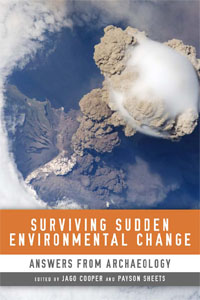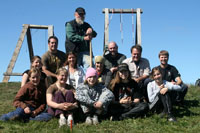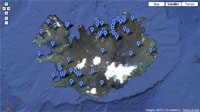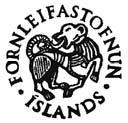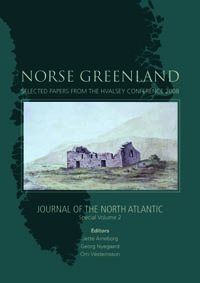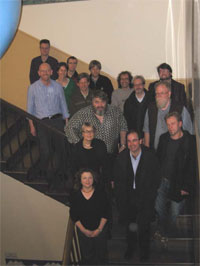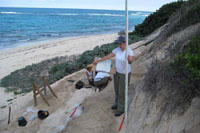
Welcome to NABO |
|
NABO was founded 30 years ago to attempt to cross-cut national and disciplinary boundaries and to help North Atlantic scholars make the most of the immense research potential of our damp and lovely research area. NABO has worked to aid in improving basic data comparability, in assisting practical fieldwork and interdisciplinary ventures, in promoting student training, and in better communicating our findings to other scholars, funding agencies, and the general public.
New NABO website
We have been developing a completely new NABO website which is currently undergoing testing and will be available soon. This modern, responsive interactive website will provide much more information about the activities of the NABO community for fellow researchers and everyone who is interested in this fascinating part of the world. Once testing is completed, the new site will simply replace the current webpages at this address [November 2023].
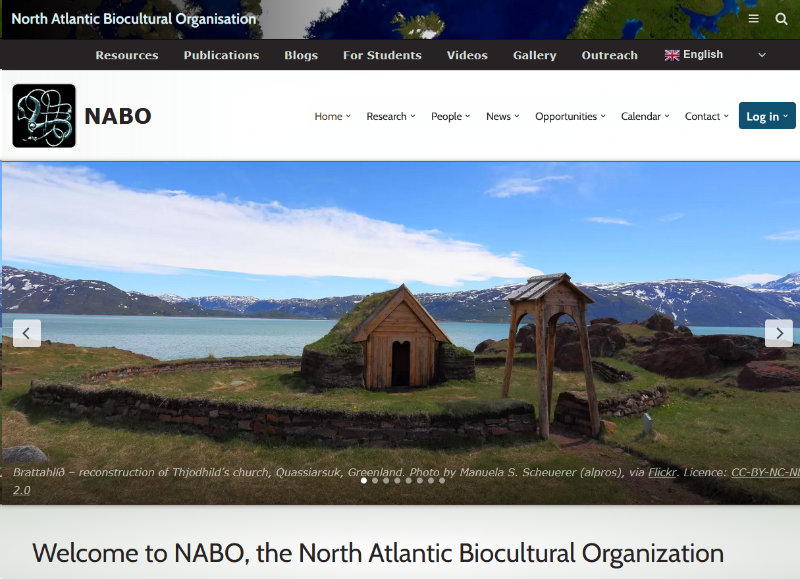
Archaeological Field School at Hofstaðir

The Universities of Iceland and Hólar are accepting applications to The Archaeological Field School at Hofstaðir, run in collaboration with The Cultural Heritage Agency of Iceland. The school, which will run from July 15th to August 9th 2024, will provide students with hands-on instruction and experience in Icelandic archaeology, various field techniques and post-excavation processes. It also aims to encourage students to develop interests in North Atlantic archaeology, heritage management and how archaeological heritage may be utilised as tourist attractions. Furthermore, it aspires to promote and facilitate research in Iceland by helping students make contacts with relevant researchers and providing advice about potential research projects.
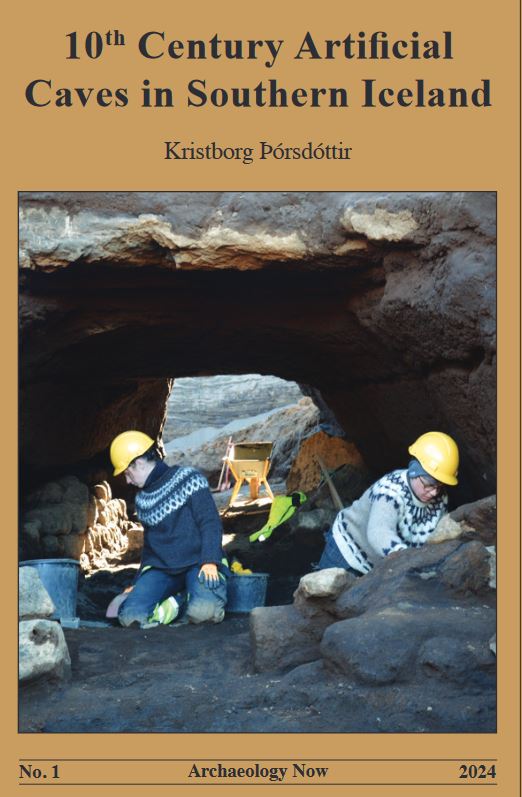
Archaeology Now
The publishers of the Journal of the North Atlantic have just launched a new open access journal, Archaeology Now. This publishes peer reviewed photo essays that provide significant academically-rigorous interim updates from ongoing excavations prior to the publication of a final report or research papers, or overviews of isolated "finds".
The first article by Kristborg Þórsdóttir titled 10th Century Artificial Caves in Southern Iceland has just been published (February 2024).
Persistent Interpretations and Continual Changes
New Theories and Alternative Approaches toward Interdisciplinary Narratives of the Past
EAA 2024: 28-31 August 2024
If you would like to submit a paper to this session of the 2024 EAA Conference on theoretical approaches to persistence and change in archaeology from Antiquity to the Middle Ages without geographical limitations, submission details can be found here.
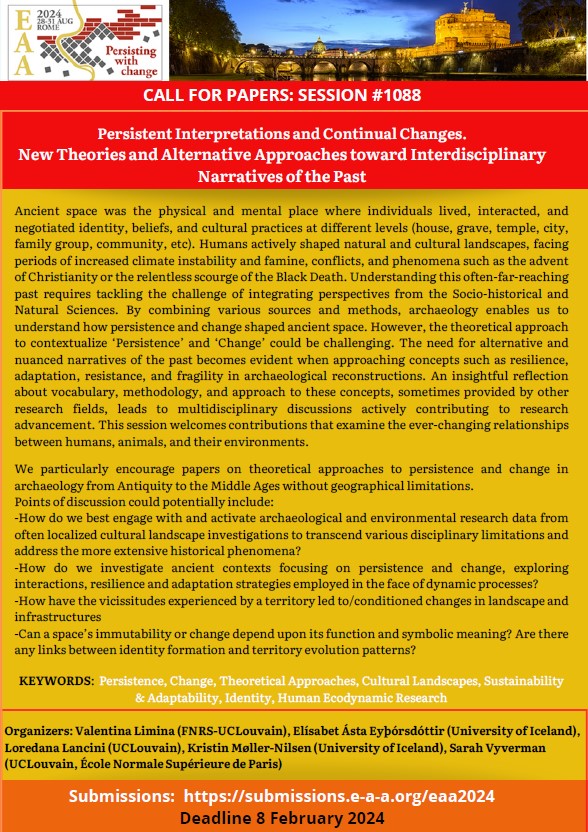
Exploring the Linkages Between History, Environmental Challenges and Contemporary Policy
June 8, 2023
1pm EDT / 6pm BST / 7pm CEST & SAST
Help us close out our inaugural season of the BRIDGING Communities Café series right by joining us for this final session on June 8, 2023. Whether or not you have been able to participate in the past, all are welcome (registration required).
Recent years have seen a number of breakthroughs in establishing the past as a key dimension for global change researchers and highlighting the need to bring environmental history, archaeology, environmental humanities, environmental science disciplines and more together with nonacademic holders of local and traditional knowledge and practitioners attempting to manage resources for sustainability. In multiple fields we are seeing acceptance of the importance of our stories of long-term human ecodynamics. Heritage and community engagement are now recognized as key elements in shaping more successful responses to global change impacts and in rallying support for action on climate change. But many challenges remain for teams to move from isolated and often superficially understood “lessons of history” to deliver influential and actionable advice to managers and decision-makers alike. A fundamental challenge remains how best to gain the open-minded attention of policy-makers and those involved in implementing policy using what strategies and tools. Historians and archaeologists (among others) believe we can make a significant contribution, but we urgently need guidance in these areas.
We look forward to exploring these challenges and opportunities with you at our fifth BRIDGING Communities Café session co-hosted by the BRIDGES CUNY/Princeton Hub in the Northeastern USA.
Videos: NABO 2022 Collaborative Meeting, Reykjavik 28-30 September
The three day NABO 2022 Collaborative Meeting was recorded and you can access the talks using the links below. Each talk has been divided into chapters so you can go straight to a particular talk:
NABO 2022 Collaborative Meeting, Reykjavik 28-30 September
Thanks to an initiative by Orri Vésteinsson and the University of Iceland, we are launching a three-day collaborative NABO meeting Sept. 28th, 29th, and 30th 2022 in Reykjavik Iceland. This will be a hybrid event, but we hope to have significant live participation. The proceedings will be recorded and posted on the NABO website.
Our theme for September 28tj and 29th will be "North Atlantic Works Back in Progress" with the aim of both reporting on new work in the lab and field and looking ahead to ongoing collaborations and new digital tools for data management and community engagement. We anticipate overviews of new and renewed projects and initiatives with field and lab results from across our region and overviews of exciting new interdisciplinary initiatives.
- Download further information about this meeting
- View the programme for the meeting, including links to join virtually
Contact Tom McGovern (thomas.h.mcgovern@gmail.com) if you are interested in participating and let us know if you can come to lovely Iceland or will be an online visitor only. Please provide a preliminary title and author list and a short 100 word summary. A draft program will be circulated by early September, so please contact us soon if you want to be included.
2nd Annual CUNY Human Ecodynamics Centre Online Workshop
The second online CUNY HERC online workshop took place on 12-13 May 2022. Titled Past Serving the Future, the workshop featured presentations by leaders of BRIDGES (Steve Hartman), Oceans Past (Poul Holm), IHOPE (Carole Crumley), and CCHRI (John Haldon) It also followed a theme of contributions to Maritime Historical Ecology, featuring participants in the North Atlantic Biocultural Organization based at HERC. Not everyone who wanted to attend could, so we have made available the introductory slides and video from the meeting:
- Past Serving the Future slides
- Video of the Day One morning session
- Video of the Day One afternoon session
- Video of the Day Two session
New NABO Website
As part of the RESPONSE (Response to Threats to Science and Heritage in Greenland) project the NABO website is going to be completely revamped over the next few months (during 2022). We will be asking NABO members for their views on what they want from the website, but if you would like to let us know what you would like to see, send us an email. [February 2022]
Climate Takeover Day: 2021 Festival of Archaeology from 17 July - 1 August
As part of the 2021 Festival of Archaeology, the 23rd July was Climate Takeover Day, in partnership with the Climate Heritage Network and Wessex Archaeology a range of videos are available to watch on YouTube from their website. These include Julie Bond talking about the important Swandro excavations on Rousay, Orkney as well as several coastal related videos involving Tom Dawson, SCAPE and others which explore the threats to coastal archaeology and how these can be mitigate with the involvement of local communities. Click to view the list of talks.
QGreenland - A Free GIS Package for Greenland
The NSF-funded QGreenland project has recently launch there free GIS tool. This is run through QGIS and contains a really wide range of data. Led by the Snow and Ice Data Center and was produced by an international group of researchers and educators. Further details can be found on their website.
Moon, T., M. Fisher, L. Harden, & T. Stafford (2021). QGreenland (v1.0.1) [software]. Available from https://qgreenland.org. https://doi.org/10.5281/zenodo.4558266.
Carlsberg Foundation and The Icelandic Research Fund Grant Opportunity
HM Queen Margrethe II´s and Vigdís Finnbogadóttir’s Interdisciplinary Research Centre on Ocean, Climate and Society
These eight postdoctoral fellowships are a collaboration by the Carlsberg Foundation and The Icelandic Research Fund.
Five two-year postdoctoral fellowships within the natural sciences focusing specifically on using molecular proxies to unravel historical climate-ecosystem relationships on land an in the ocean and mapping relationships between climate conditions and the marine biosphere in the Anthropocene; on identifying climate induced changes in ocean processes; and on using tephra chronology to establish robust age models for marine and terrestrial sediment cores.
Three two-year postdoctoral fellowships within the humanities and social sciences focusing specifically on the ocean and the implications of climate change for Icelandic culture and social life.
Applicants must have less than five years of post-PhD experience and the deadline for applications is the 1 October 2020.
More details about the projects are available here.
SEACHANGE
Changes – physical, biological and environmental - in the marine environment are fundamentally cryptic. Even in the present day, when we have detailed measurements of many marine properties, we are hampered in our understanding by the shifting baseline, and the fact that most change in the marine environment occurs out of sight beneath the ocean surface. For periods before instrumental records became available, the impact of human cultural activity on marine ecosystems is largely unknown.
SEACHANGE is an ERC (European Research Council) Synergy grant and aims to tackle this knowledge gap by applying novel geochemical and genetic techniques to high resolution marine proxy archives. SEACHANGE will be looking at five periods of major cultural transition during the Holocene:
- The Mesolithic to Neolithic transition in the North Sea (~6ka BP)
- The impact of aboriginal culture and the colonial transition in Australia between ~6ka BP and the present day
- The Viking settlement of Iceland in 874 CE and the intensification of fishing to the present day
- The transition to industrial fishing in the North Sea from 1000 CE to 1800 CE
- The onset and cessation of whaling in Antarctica in the first half of the 20th century
SEACHANGE will be using nitrogen isotopes in the organic fraction of the shells of bivalve molluscs, as well as environmental DNA in those same shells to reveal changes in food web dynamics and ecosystem function. SEACHANGE will effectively crossfertilize a number of diverse disciplinary traditions/areas including marine ecology, marine geology, geochemistry, molecular biology (metagenomics), historical ecology, archaeology and anthropology. Research groups from University of Exeter), University of Copenhagen, University of Mainz and University of York will be involved.
Paul Butler (University of Exeter)
Archaeology, Climate Change Threats and Sustainability
Heritage on the Edge
The ICMOS/CyArk/Google Arts and Culture-funded Heritage on the Edge project has recently launched. IOCMOS (International Council on Monuments and Sites) Climate Change Working Group (CCHWG) members worked with CyArk and Google to produce this fascinating climate change and heritage resource. Through impressive visualisation, this project emphasises the threats to, and deteriation of, the world's cultural heritage through climate change.
UNESCO BRIDGES Program
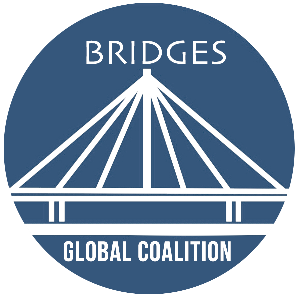 NABO is now affiliated with the UNESCO BRIDGES Program. BRIDGES is a new UNESCO initiative now moving forwards as a sustainability science coalition proposed for integration in their MOST (Management of Social Transformations) intergovernmental science program. The intention of the coalition is to better integrate humanities, social science, and local and traditional knowledge perspectives into research, education and action for global sustainability through development and coordination of resilient responses to environmental and social changes at local and territorial scales. The BRIDGES logo expresses the aim of connection between knowledge holders, disciplines, and practitioners needed to better coordinate effective responses to rapid large -scale change.
NABO is now affiliated with the UNESCO BRIDGES Program. BRIDGES is a new UNESCO initiative now moving forwards as a sustainability science coalition proposed for integration in their MOST (Management of Social Transformations) intergovernmental science program. The intention of the coalition is to better integrate humanities, social science, and local and traditional knowledge perspectives into research, education and action for global sustainability through development and coordination of resilient responses to environmental and social changes at local and territorial scales. The BRIDGES logo expresses the aim of connection between knowledge holders, disciplines, and practitioners needed to better coordinate effective responses to rapid large -scale change.
CUNY through NABO, has been approved for UNESCO BRIDGES formal affiliation of two projects:
- Gateway to the Atlantic: Climate change threats to heritage and island sustainability in the Northern Isles of Scotland.
- Response to Threats to Science and Heritage in Greenland (RESPONSE)
Further details will be available here.
NABO RESPONSE Project
The new NSF-funded NABO RESPONSE project will work to rescue excavate archaeological midden deposits, Norse cemeteries, and Colonial era mission settlements while expanding the ongoing Greenland National Museum and Archives site survey and documentation program. The RESPONSE project also will work to extend the paleoecological record through bog and lake coring and extensive geo-archaeological sampling of home fields to reconstruct long term human ecodynamics. It will also work to build Greenlandic capacities for further heritage rescue and conservation work and aid early career Greenlandic and international student engagement.
In the best NABO traditions, this is an international cross-disciplinary collaborative project led by Tom McGovern (Hunter College, CUNY) which brings together expertise and knowledge from the University of Greenland, National Museum of Denmark, Memorial University of Newfoundland, University of Iceland, University of Bergen, University of Edinburgh, University of Glasgow and University of Stirling.
This project runs for three years from September 2019. More details on this project will be available soon on this website, and we have an initial project specific home page.
HERC Newsletter February 2019
The HERC center was established at the CUNY Graduate Center in 2011 and is now undergoing a revisioning process that we hope will add value and create more opportunities for CUNY scholars to engage with initiatives and networks active in archaeology of global change research. We hope to periodically produce newsletters like this one (please feel free to send materials and suggestions) which will soon be posted on a revised HERC website.
This newsletter focuses on the problems of climate change threats to heritage and science and provides some links to active organizations and initiatives. It also flags up some upcoming conferences and workshops that offer opportunities to get engaged. Please suggest additions and revisions, and please join in the effort.
NABO 2019 General Meeting May 19-20th
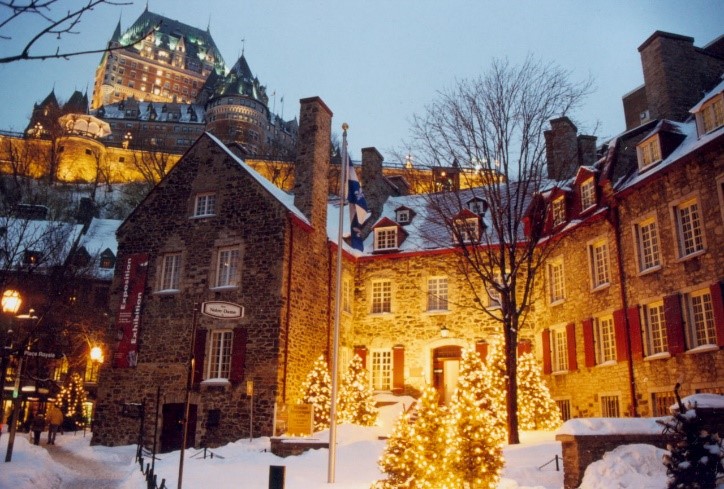 The NABO 2019 General Meeting will be hosted by Dr. Jim Woollett of the Université Laval in lovely Quebec City in May 19-20th 2019. The NABO meeting is being held in collaboration with the 2019 Canadian Archaeological Association meetings May 15-18 in Quebec, and we hope that NABO participants will also attend and participate in the CAA meeting. We hope to present several sessions at the CAA around NABO-friendly themes including Maritime Adaptations & the Oceans Past Initiative, North Atlantic Encounters (culture contacts, world systems, and impacts of modernity) and "Burning Libraries" responses to climate impacts on heritage and science.
The NABO 2019 General Meeting will be hosted by Dr. Jim Woollett of the Université Laval in lovely Quebec City in May 19-20th 2019. The NABO meeting is being held in collaboration with the 2019 Canadian Archaeological Association meetings May 15-18 in Quebec, and we hope that NABO participants will also attend and participate in the CAA meeting. We hope to present several sessions at the CAA around NABO-friendly themes including Maritime Adaptations & the Oceans Past Initiative, North Atlantic Encounters (culture contacts, world systems, and impacts of modernity) and "Burning Libraries" responses to climate impacts on heritage and science.
Other themes and session ideas are most welcome and the NABO workshop following CAA is open to all and we hope to use it as both a follow on to the papers presented at CAA and an opportunity for forward planning and collaboration with the PESAS (Paleoecology of Sub Arctic and Arctic Seas), Oceans Past Initiative, Humanities for Environment Circumpolar Observatory, and the new NABO Greenlandic RESPONSE project. All are welcome, some travel assistance may be available.
For more information on the NABO 2019 meeting contact Tom McGovern (thomas.h.mcgovern@gmail.com), to propose a session or offer a paper at the CAA please contact Jim Woollett (James.Woollett@hst.ulaval.ca).
More details to come.
Knowe of Sandro, Rousay, Orkney
The multi-period site at the Knowe of Swandro on the west coast of the island of Rousay, Orkney is being destroyed by the sea. Excavation has revealed that the site is a multi-period settlement mound dating from the Iron Age through to the Pictish period and probably to the Viking period and the Westness Viking houses, which we have now shown overlie part of the site.
Participation: places available for 2019 The excavation (directed by Dr Julie Bond and Dr Steve Dockrill) incorporates a Field School training programme and provides an opportunity to gain excavation experience on a complex archaeological sequence in the heart of one of the world’s most significant archaeological landscapes. For details of the project please visit www.swandro.co.uk.
Download PDF with further details.
Human Ecology and Culture at Lake Mývatn 1700-2000: Dimensions of Environmental and Cultural Change
Bárðardalur, northern Iceland, 16-26 August 2019
Co-organized by: The Svartárkot Culture-Nature Project; The Reykjavik Academy; the City University of New York; and the Stefansson Arctic Institute, in cooperation with NABO (The North Atlantic Biocultural Organisation); NIES (The Nordic Network for Interdisciplinary Environmental Studies); GHEA (The Global Human Ecodynamics Alliance); and the Circumpolar Networks case of IHOPE (The Integrated History and Future of People on Earth), a core project of Future Earth.
An interdisciplinary course is offered in the Environmental Humanities and Social Sciences, located at Bárðardalur, northern Iceland, connecting local communities and issues with global developments, studying the Lake Mývatn area and the Bárðardalur valley on the banks of the glacial Skjálfandafljót river with its magnificent waterfalls. The course encompasses a unique blend of lectures and experiences of cultural histories embedded in landscapes.
Aimed at masters and doctoral-level study, this summer course based at the northern edge of the Icelandic highland wilderness addresses questions of long‐term societal resilience in the face of changing climate and society, natural resources, effects of early globalization and anthropogenic transformation of landscapes and ecosystems. The course also welcomes professors and scholars looking for new insights and inspirations in post-and transdisciplinary methods
- Official course description, including application procedures, deadlines, tuition, practical arrangements, and full contact details.
- Programme Details.
- Cover Letter.
- Please download a poster to advertise the course
dataARC

The NSF-funded dataARC project is an interdisciplinary effort aimed at linking data from archaeology, paleoenvironment, paleoclimate, and the humanities to more easily address questions on the long-term human ecodynamics of the North Atlantic and beyond. dataARC builds on the pilot cyberNABO project. Pulling in professionals from informatics, data visualization, and the data creators themselves, dataARC is ambitiously creating a data infrastructure and digital tool that will allow scientists to more easily discover, access, link, and understand these data to enable interdisciplinary research, largely building off intensive research performed by NABO.
Cultural Resources Climate Change Strategy
Rapid climate change poses a particular challenge our cultural resources and the US National Park Service has launched a Cultural Resources Climate Change Strategy: "Cultural resources are our record of the human experience. Collectively, these archeological sites, cultural landscapes, ethnographic resources, museum collections, and historic buildings and structures connect one generation to the next. The National Park Service is charged with conserving cultural resources so that they may be enjoyed by future generations. Climate change is adding challenges to this role, and will continue to affect cultural resources in diverse ways. At the same time, through the tangible and intangible qualities they hold, cultural resources are also part of the solution to climate change."
- Climate Change and National Parks (US NPS)
- NPS Climate Change Response Facebook video
- Union of Concerned Scientists Blog
- Union of Concerned Scientists and the National Trust for Historic Preservation Statement
Comparative Island Ecodynamics in Iceland & Greenland Project (CIE)
This NSF-funded project (US$1.3 million between 2012-16) supports a series of interlocking excavation and survey projects in Iceland and Greenland aimed at better understanding the complex interactions of human choice, environmental change, climate impacts, and early world system effects on the very different historical pathways of the Nordic settlements in Iceland and Greenland. This is an umbrella program building on the successful NABO International Polar Year collaborations (2007-11), which shares logistics, staff and students, and funded specialists in Zooarchaeology, Archaeobotany, Geoarchaeology, Radiocarbon and Stable Isotope analysis, Models and Data Management, and community outreach. More details are available from our new CIE page.
Global Environmental Change Threats to Heritage and Long Term Observing Networks of the Past
IHOPE have put together a theme to establish the threats to our heritage from global environmental change. These threats include wind, the sea and rising soil temperatures. This is destroying invaluable archaoelogical records and often previously unknown sites. The American Anthropological Association's Global Climate Change Task Force produced a report Statement on Humanity and Climate Change, which highlighted eight main points. More details on this new IHOPE Theme are available here. Other recent links to the impact of climate change on archaeological records include the NOAA Sea Level Rise Viewer, Climate Change and California Archaeology Studies and the Climate change impact on the Point Reyes National Seashore, Marin County, California report.
Walking on eggshells? Millennial-scale sustainable community management
A new article on www.futureearth.org website discusses the NABO community's research into over 1000 years of sustainable natural resource management of waterfowl around lake Mývatn, Iceland. Written by Árni Einarsson, Megan Hicks, Kesara Anamthawat-Jónsson and Tom McGovern. Archaeological excavations of a midden at Skútustaðir has revealed large numbers of egg shell fragments in contact with the well dated Landnám (871±2 CE) tephra layer. This demonstrates that sustainable egg collection and water fowl began as soon as the first settlers colonised this area.
Read the full article for more details and more reports on this excavation can be found here.
The Pocantico Call to Action on Climate Impacts and Cultural Heritage
In 2014, the Union of Concerned Scientists (UCS) published Landmarks At Risk report and a strategic workshop was organized on preserving cultural heritage in a changing climate. A Call to Action on climate and cultural resources which resulted from the meeting was co-sponsored with the National Trust for Historic Preservation, the Society for American Archaeology and the J.M. Kaplan Fund. NABO was one of the first signing organisations. For further details contact Adam Markham, Deputy Director of Climate and Energy at the UCS.
Heritage At Risk: SCAPE Trust--Scotland's Heritage At Risk Project
This video was shot by Regan Alsup and shows the impact of coastal erosion on the archaeology of Brora, Scotland. The SCAPE Trust (Scottish Coastal Archaeology and the Problem of Erosion) aims to conserve and promote the archaeology of Scotland's coast. The related SCHARP (Scotland's Coastal Heritage at Risk Project) aims to provide opportunties for the public to take part in archaeological and historical exploration and discovery.
|
Human Ecodynamics in the North Atlantic
A Collaborative Model of Humans and Nature through Space and Time Ramona Harrison and Ruth A. Maher have compiled a series of separate research projects conducted across the North Atlantic region that each contribute greatly to anthropological archaeology. This book assembles a regional model through which the reader is presented with a vivid and detailed image of the climatic events and cultures which have occupied these seas and lands for roughly a 5000-year period. It provides a model of adaptability, resilience, and sustainability that can be applied globally. Further details on this book are available on the Lexington Books website. Greenland Isotope Project: Diet in Norse Greenland AD 1000-AD 1450 Journal of the North Atlantic Special Volume No. 3 presents one of the most comprehensive studies to date of the food consumption and dietary economy of a historical population based on stable isotope analysis. The Norse Greenlanders are in this respect particularly of interest because their settlements in Greenland were constrained chronologically (ca. 500 years) and physically (the pasture lands of Southwestern Greenland). Archaeological efforts in Greenland have very likely uncovered all the settlement areas, including churches and cemeteries; thus, we can be reasonably assured that while new finds of, e.g., farmsteads may appear in future, the overall picture of the Norse settlements is pretty much fixed. Project Management
A lot of new data has been added to our Project Management System, including several new Scottish sites, more Icelandic project and the addition of sites further south in Antigua and Barbuda and Cuba. We have created a Project Management System, where NABO projects can be entered by researchers, displayed on a map and content made available to others. Please check out this new feature here or use the projects link above. If you wish to enter data into the system, you must first register but no registration is needed to search for projects and download data. Hofstaðir Award
|
Surviving Sudden Environmental Change: Answers from Archaeology.
The University Press of Colorado have just published a new book on how the archaeological record can help us to understand how we can cope with sudden environmental change. This book arose out of the October 2009 meeting in Maine, which lead to the creation of GHEA and this is the first major publication from our group. The editors, Jago Cooper and Payson Sheets, have brought together authors from a wide variety of backgrounds to contribute to this publication. It is available to buy for only $19.99, but it can be downloaded for free as a PDF from The University Press of Colorado This will hopefully be the first of many collaborative publications from the GHEA community. Kids Archaeology School
The Kids' Archaeology School (Fornleifaskóli barnanna) was formally established in the spring of 2007 and has since grown in scope and aim. The Kids archaeology program is now a key part of the Historical Ecology: Islands of Change Initiative, funded in part by the National Science Foundation Office of Polar Programs in the USA. This collaboration allows Icelandic students to interact through organized activities with students in in New York, Greenland, Orkney, Faroes, Norway, Antigua/Barbuda, Curacao and Bonaire. Details about the Kids' Archaeology School, Iceland can be found on the NABO website and the Fornleifaskóli barnanna site. The latest report on The Kids Archaeology Program (Fornleifaskóli barnanna) by Sif Jóhannesdóttir and Unnsteinn Ingason is now available. FSÍ Donation to NABO At the 2009 Viking Congress held in Reykjavik and Reykholt The Institute of Archaeology (Fornleifastofnun Íslands) (FSÍ) made a major donation to the NABO website data project of over 20 years of research amounting to over 300 survey and excavation reports in downloadable pdf format. 70 sites/projects and 149 reports loaded into our system, they can be accessed here .
We would like to gratefully acknowledge this generous gift of hard won data by FSÁ to the Icelandic nation and to the international community and we look forward to working with them in the future to provide updates to this impressive body of information. |
Norse Greenland: selected papers from the Hvalsey Conference 2008
The Journal of the North Atlantic has recently published the book Norse Greenland - selected papers from the Hvalsey Conference 2008. Editors are Jette Arneborg, Georg Nyegaard and Orri Vésteinsson. The book is about 200 pages and includes 16 papers on various aspects of the Norse settlement in Greenland. For those interested in purchasing a copy of the book, contact kristborg@instarch.is. GHEA website
October 2010 saw the launch of our sister GHEA website. The Global Human Ecodynamics Alliance (GHEA) is an organization of social scientists, natural scientists, historians, educators, students, policy makers, and others interested in promoting cutting-edge research, education, and application of the socioecological dynamics of coupled human and natural systems across scales of space and time. As of May 2016 there are now 203 members and to join this dynamic group visit https://www.gheahome.org. International Polar Year NABO members were very active during IPY on the national and international scale, and major funding was secured from Danish, Canadian, and US sources for an ambitious effort to continue and expand NABO collaboration with a special NABO IPY Project: Long Term Human Ecodynamics in the Norse North Atlantic: cases of sustainability, survival, and collapse. This project was funded at just over US$ 900,000 and had fieldwork seasons 2008-10 in the Shetlands, Faroes, Iceland, and SW Greenland. More details of our involvement in International Polar Year can be found here.
Barbuda
NABO is not all about the northern North Atlantic. We are also active in the Caribbean. Our work in Barbuda began in 2000 with CUNY archaeologists and an international team of environmental researchers, in collaboration with the Antigua & Barbuda scholars and agencies and by the invitation of Dr. Reg Murphy (head of archaeology for National Parks Antigua and Barbuda). Reports on our work in Barbuda are available here. NABONE 9th Edition This recording manual is the 9th working version of the NABO Zooarchaeology Working Group Data Records Project, authorized by the January 1997 working group meeting in New York City. The basic structure follows James Rackham's database (Microsoft Access) with some changes and clarifications for North Atlantic applications The NABONE system consists of this coding manual, a developed Microsoft Access database with useful queries and reports, and an Excel spreadsheet set providing analytic output similar to the old Hunter College QBONE system. This recording manual is available here |
Our multinational and multidisciplinary nature means that we publicise our activities as widely as possible. Please let us know if you have any queries about anything on this website and especially if you feel you can contribute.
The NABO webpages are hosted by the School of GeoSciences at the University of Edinburgh.

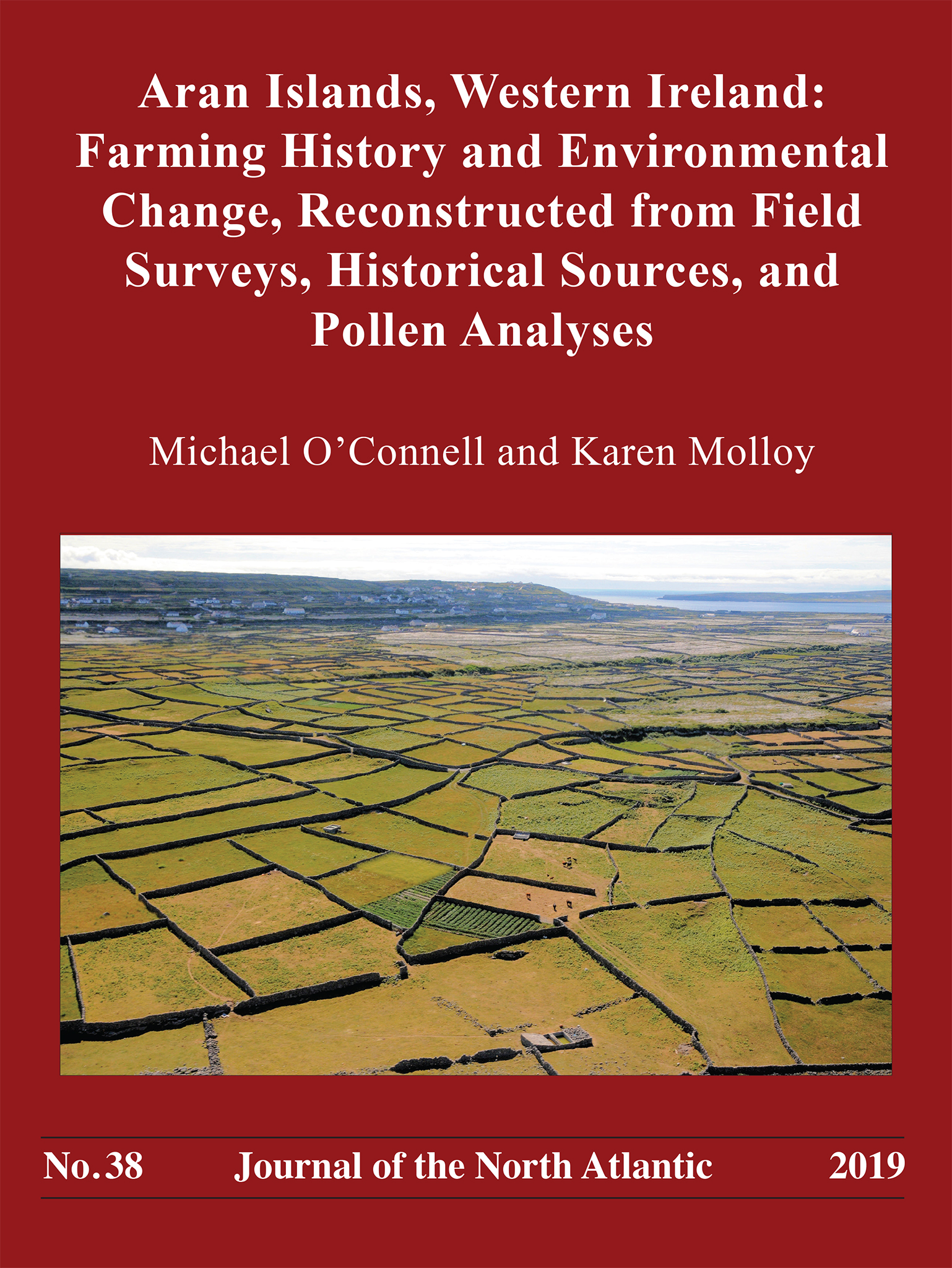

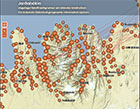
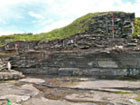


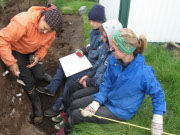


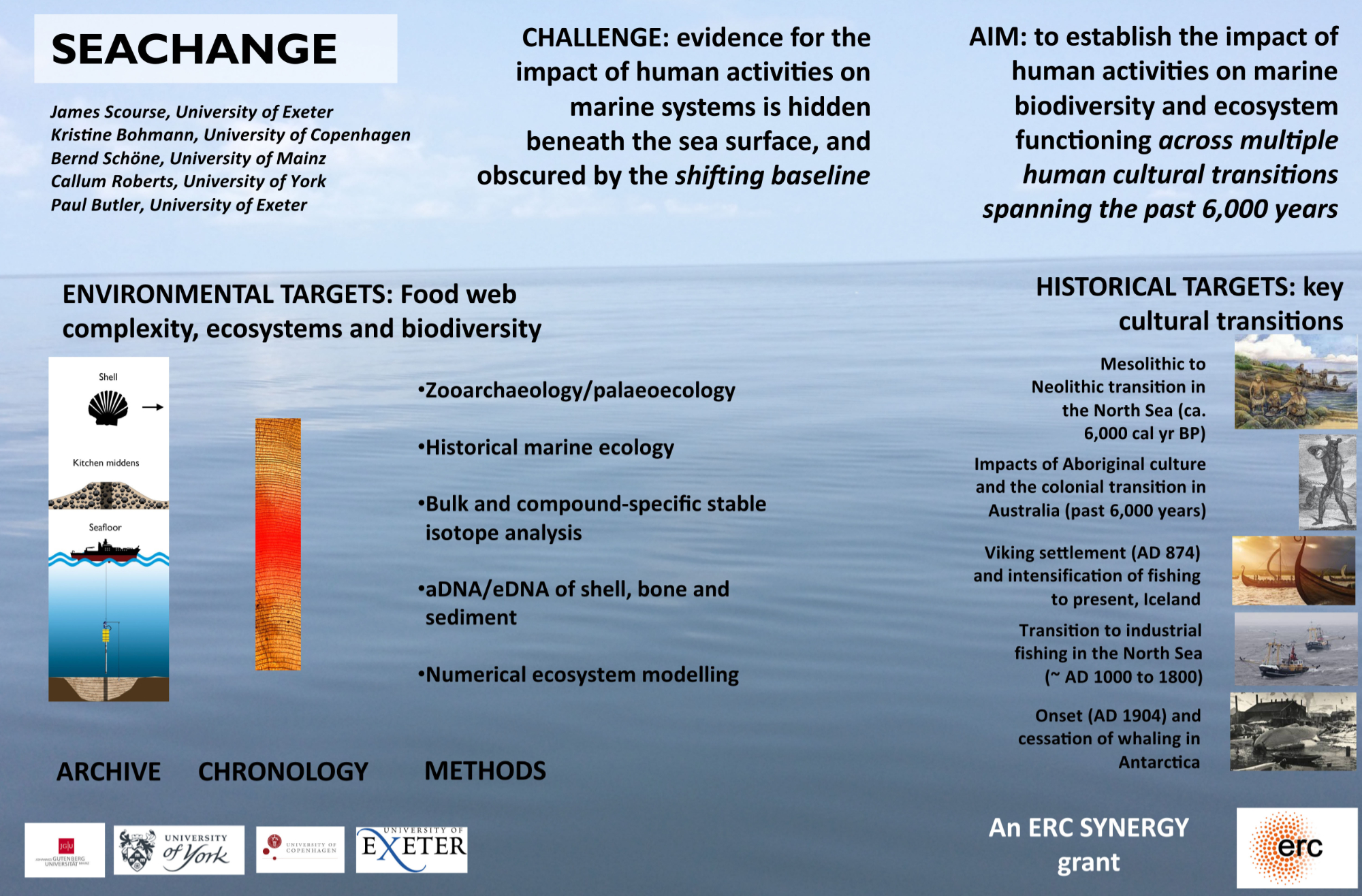
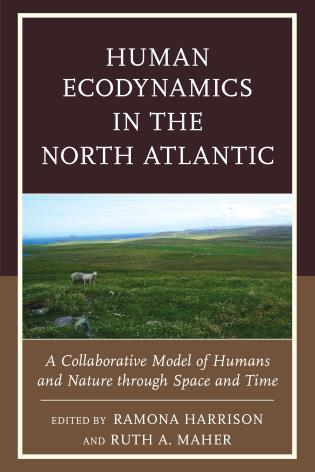
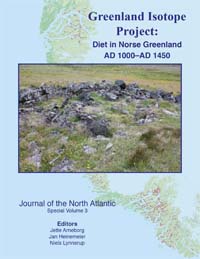
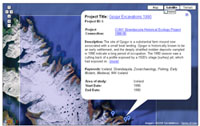
 Gavin Lucas and
Gavin Lucas and
